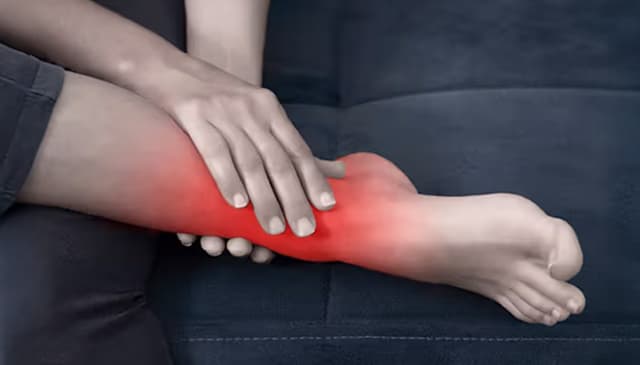
When's the Best Time for Athletes to Use Natural Pain Relief Spray?
2024-01-22
8 min read
Food poisoning can turn a great meal into a nightmare. Whether it's a bad case of nausea, vomiting, or that dreaded stomach pain, it’s an experience everyone would rather avoid. But beyond the discomfort, one pressing question often arises: Is food poisoning contagious? Understanding this can help you navigate your next steps, whether you’re the one feeling ill or trying to protect others around you.
First things first—what exactly causes food poisoning? It’s not just one thing; food poisoning can be triggered by a variety of reasons. It can result from ingesting food or drinks contaminated with harmful pathogens like bacteria, viruses, or parasites. Common culprits include Salmonella, E. coli, Listeria, and Norovirus. These pathogens typically make their way into your system through improperly handled, cooked, or stored food. Once in your body, they can wreak havoc, leading to the classic food poisoning symptoms.
Here’s where it gets interesting. Food poisoning itself isn’t typically contagious like the flu or a cold. In other words, you won’t catch food poisoning just by being near someone who’s sick. However, the story doesn’t end there. Some of the germs that cause food poisoning can spread from person to person in certain situations.
While food poisoning doesn’t directly jump from one person to another, some of the pathogens responsible for it can. For example, norovirus, a common cause of food poisoning, can spread through contact with an infected person’s vomit or stool. If someone doesn’t wash their hands properly after using the bathroom, they can transfer the virus to surfaces, food, or even other people.
Imagine a group of friends sharing a meal, and that meal just so happens to be contaminated. Everyone who eats it could get sick, but it’s not because they’re spreading the illness to each other—it’s because they all ate the same contaminated food. In these cases, it might seem like the illness is contagious, but it’s really the food that’s the problem.
Good hygiene practices are a must to prevent the spread of foodborne pathogens. Always wash your hands thoroughly with soap and water before handling food and ensure that all kitchen surfaces and utensils are cleaned regularly. Cook foods to the recommended temperatures to kill harmful bacteria and avoid cross-contamination by using separate cutting boards for raw meats and vegetables.
Proper food storage is crucial to prevent bacterial growth. Keep perishable items refrigerated or frozen, and always keep raw meats away from other foods to prevent cross-contamination. Always check expiration dates and throw away any food that looks or smells spoiled.
If you are experiencing food poisoning symptoms, it’s essential to practice good personal hygiene. Wash your hands frequently, avoid preparing food for others, and stay hydrated to support your recovery.
When experiencing food poisoning, the primary focus is on hydration and rest. Here’s how to manage symptoms effectively:
Hydration: It’s essential to stay hydrated, particularly if you’re experiencing vomiting or diarrhea. Oral rehydration solutions or electrolyte-rich beverages can help maintain fluid balance.
Diet: Start with bland foods like crackers, toast, or bananas once you feel able to eat. Avoid dairy products, fatty foods, and spicy items until recovery is well underway.
Staying healthy isn’t just about avoiding what’s bad—it’s also about adding what’s good.
Incorporating wellness products into your routine can be a proactive way to support your overall health. For example, detox candy is designed to help your body flush out toxins and support your digestive system. These candies are more than just a treat; they’re a tasty way to assist your body’s natural detox processes.
Apart from detox candy, other wellness products such as dietary supplements and probiotics can also support a healthy gut flora. These products may help reduce the severity of symptoms from gastrointestinal issues. However, it’s important to consult a healthcare professional before introducing any new products, especially when you're unwell.
In summary, while food poisoning itself is not typically contagious, the pathogens that cause it can sometimes spread through indirect means or contaminated environments. Practicing good hygiene, adhering to food safety guidelines, and utilizing wellness products like detox candy can aid in both prevention and recovery. Staying informed and proactive in maintaining personal health is key to managing and preventing foodborne illnesses.
Food poisoning usually lasts between 1 to 3 days. However, depending on the type of pathogen involved, it can extend up to a week. Mild cases often resolve within a day, but if symptoms persist longer, it’s wise to seek medical advice.
The best care is to stay hydrated—drink plenty of fluids like water, oral rehydration solutions, or clear broths. Get plenty of rest, and when you feel up to it, eat bland foods like toast or rice. Avoid dairy, caffeine, and fatty foods until you're fully recovered.
Seek medical help if you experience high fever, blood in your stool, prolonged vomiting, or signs of dehydration like dizziness or decreased urination. Also, if symptoms persist beyond three days or if you’re in a high-risk group, it’s important to consult a healthcare professional.
Share this article: